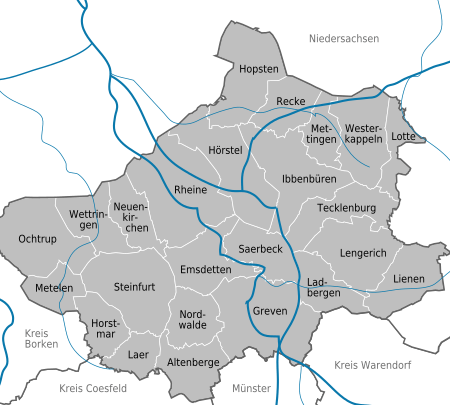Fraunhofer complete a case study for the Steinfurt region, Germany, in collaboration with the region's heating service centre

Anna Billerbeck, Markus Fritz and Ali Aydemir completed a case study for the Steinfurt region in Germany. They worked together with the region's heating service centre.
The case study focused on heat planning in the 24 municipalities of the region. A survey was conducted among the municipalities and utilities in the region, including questions about the current status of heat planning, challenges and success factors in heat planning, and support needed from the regional service centre.
A total of 23 stakeholders from the region participated in the survey, with the majority of responses coming from municipal authorities. The majority of respondents indicated that their municipality had already started to develop a heat plan. Data availability, qualified staff and communication were identified as particularly important for successful heat planning, but also as particularly challenging. The participants would like to receive support from the region's heating service centre in the form of bilateral exchanges and workshops, with a focus on the implementation of policies and projects for the heat transition.
Finally, the survey indicates that respondents' opinions differ depending on whether they work for the municipality or the utility. There are also differences within the municipal authority, i.e. between different departments. This suggests that internal municipal structures influence perceptions, which in turn may influence the success of heat planning. This begs the question: Is the different perception a problem or perhaps even helpful in identifying hurdles at an early stage?
Subscribe to our Newsletter

This project has received funding from the European Union’s Horizon 2020 research and innovation program under grant agreement No 101033706. The sole responsibility for the content of this website lies with the Act!onHeat project and does not necessarily reflect the opinion of the European Union.




